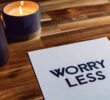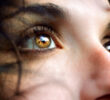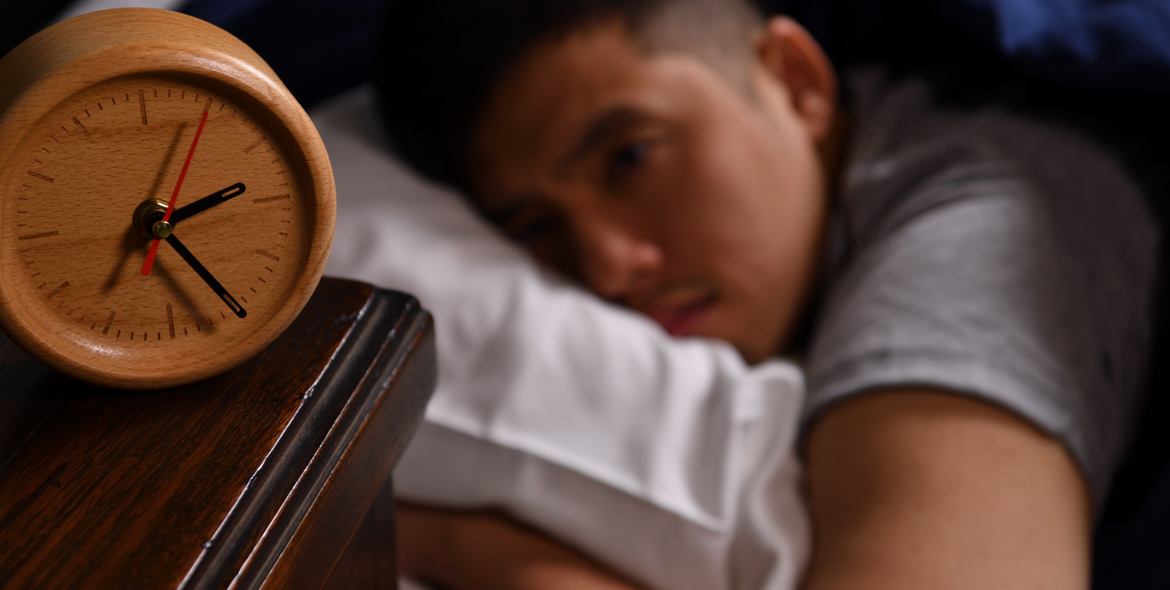Everything You Need to Know about Circadian Rhythm Sleep Disorder
- Anthony Andrews
- March 17, 2021
- Sleep Disorders
What is Circadian Rhythm and How Does It Affect Your Sleep?
Your brain follow’s a 24-hour internal clock, which controls your sleep and alertness.
Its function depends upon the changes taking place in your environment.
It determines all activities you perform, such as when it gets dark and when it’s daylight, it also tracks your other physical activities, eating habits and digestion, change of body temperature and your sleeping pattern.
When your biological clock is disrupted, your sleep-wake cycle suffers.
For example, when the night falls, your circadian cycle signals your body to sleep; however, if you fail to do so, your sleep quality suffers, leading to Circadian Rhythm Sleep Disorder or Sleep-Wake Cycle Disorder.
In addition to that, your sleep-wake cycle is controlled by your body’s circadian rhythm, that could influence hormone release such as melatonin.
The suprachiasmatic nucleus (SCN) tells your body, or more specifically, the pineal gland, to release melatonin, which causes your body to fall asleep.
The release of melatonin is dependent on the environment surrounding you.
Jet lag and frequent changes in work shifts are two major factors that affect circadian rhythm.
It may also contribute to obstructive sleep apnea (OSA).
Circadian rhythm changes can also contribute to insomnia and excessive daytime sleeping.
It is also common in patients suffering from neurodegenerative diseases.
The study of circadian rhythms dates back to the 18th century, and numerous studies have been conducted to demonstrate the behavior of circadian clocks in mice, fruit flies, and other mammals, including the following:
Michael W. Young, Jeffrey C. Hall and Michael Rosbash has won the prestigious Nobel Prize award in Physiology Medicine in 2017. Their discovery focuses on “molecular mechanism controlling circadian rhythm” in fruit flies.
National Library of Medicine has supported researchers for their “phenotyping circadian rhythms in mice” in 2015.
Another researcher in 2018, also studied mammalian circadian nature of physiology and behavior.
What are the Main Types of Circadian Rhythm Disorder?
There are 6 main types of circadian rhythm sleep disorder:
Advanced Sleep Phase Disorder (ASP): also known as advanced sleep phase syndrome. This is more common in middle-aged and elderly people who go to bed earlier than average, between 6pm and 9pm and morning wake-cycle from 2am to 5am. The sleep pattern can affect your sleep-wake time, resulting in afternoon sleepiness, whereas naps are more likely to occur in between and may affect your bedtime sleeping hours. In order to delay the onset and offset sleep, ASP can be treated with light therapy, chronotherapy, melatonin administration, or hypnotics. Despite the fact that there is no evidence of efficacy, it is still best to consult your healthcare provider.
Delayed Sleep Phase Disorder (DSPD): also known as delayed sleep phase syndrome or delayed sleep-wake phase disorder. If you describe yourself as a “night owl”, then you are highly susceptible to this type of circadian rhythm sleep disorder. People in this condition sleep later than usual and thus wake up late or have to drag themselves out of bed. According to some studies, the majority of patients with this disorder have clinical depression or psychological issues. If this condition worsens, it can lead to chronic insomnia. This disorder is also linked to attention deficit hyperactivity disorder (ADHD), Obesity and Obsessive-Compulsive Disorder (OCD).
Irregular Sleep-Wake Disorder (ISWD): also known as invisible disability. This disorder is normally characterized by excessive naps throughout the day. People in this condition has the higher tendency of being isolated and home-bound due to irregular pattern of sleep and wake hours. ISWD is a rare condition which has been linked to a variety of neurological conditions such as dementia, brain damage, and other mental health disorders. To diagnose ISWD, your doctor will typically conduct a thorough review of your medical history as well as a neurological exam. You will also be observed for several weeks and may be asked to log your wake-sleep pattern using actigraphy. This disorder can be treated with good sleep hygiene, melatonin consumption, and behavioral counseling.
Jet lag disorder: also known as time zone change syndrome or desynchronosis. It is most common in intercontinental flights, such as travelling from Sydney to Bahrain will took you almost 18 hours with a time difference of 7 to 8 hours, when it’s 3AM/4AM in Sydney your body detects Bahrain timings of 8PM. Another example is Los Angeles to HongKong flights, whereas Hongkong is 15 hours ahead of Los Angeles. Due to each time cross, your body needs to adjust. Jetlag normally can be fixed in a day or two, it can be longer depending on the time zone.
Shift Work Sleep Disorder (SWSD): this form of circadian rhythm disorder occurs when your sleep-wake cycle is disrupted. This man-made problem has affected especially people who are on shiftwork, such as early-morning shifts (e.g. starting at 4 am in the morning), night and evening shifts (e.g. night owl) or rotational shifts. This disorder typically starts with short term symptoms such as excessive sleep, anxiety, insomnia, headache, fatigue and lack of energy, while long term effect can lead to chronic insomnia, cardiovascular disease, cancer, depression, obesity, diabetes, high blood pressure, gastrointestinal problems, weakened immune system, menstrual irregularity and fertility problems. This can be treated by taking sleep supplements, using light therapy, limiting caffeine consumption, especially before bed, and practicing good sleep hygiene.
Non-24-hour sleep-wake disorder (N24): also known as N24SWD or hypernychthemeral syndrome or free-running disorder, this is one of the more severe cases of circadian rhythm disorder. This condition is found in people whose brains can’t acknowledge lightning or have shown to be supersensitive to light which leads to irregular sleep patterns. N24 is commonly seen in blind people due to a lack of light perception or a lack of light response. Also, this disorder has been linked to some sleep disorder such as idiopathic hypersomnia, narcolepsy and Kleine-Levin syndrome, bipolar disorder, depression, traumatic brain injury, Mendelian inheritance, and hormone imbalances. Treatment for N24 involves light therapy and dark therapy or a combination of both.
What are the Symptoms of a Circadian Rhythm Sleep Disorder?
If you are facing issues in falling asleep and believe that it might be due to circadian rhythm sleep disorder, the following are the symptoms:
Excessive daytime sleepiness or periodic night insomnia
People suffering from this disorder face issues in falling and staying asleep. A few of them have difficulty in both
Circadian rhythm sleep disorder makes it difficult to stay awake and alert during the day
Fatigue, exhaustion, and lethargy are common while suffering from this condition
Inability to concentrate
Mood swings and Irritability
Affects lower cognitive ability or selective attention
Headaches
Those suffering from jet lag frequently experience stomach problems
Who is at Risk for a Circadian Rhythm Sleep Disorder?
There are certain medical conditions that increase the risk of developing a circadian rhythm sleep disorder. The major ones include:
Congestive heart failure
Thyroid Disorder (Hyperthyroidism or Graves Disease)
Dementia
Chronic obstructive pulmonary disease
Chronic pain syndromes
Intellectual Disability or Cognitive Impairment
How is a Circadian Rhythm Sleep Disorder Treated?
There are two ways in which you can force your circadian rhythm to tick as you want it to.
These include medications and homecare.
Depressant Medication
The most commonly used supplements are benzodiazepines, nonbenzodiazepine hypnotics, Orexin receptor antagonists, and Provigil, which are self-administered or prescribed by a doctor.
While the most common treatment for jetlag or short-term sleep disorder is an over-the-counter melatonin supplement.
Home Care
If you want to get your sleep cycle back to normal without using medication, there are a few tips and tricks you can try
Indulge in quiet activities before settling in bed. For instance, reading
Avoid tea, coffee, nicotine, and other stimulants before sleeping
Keep away from bright lights
Ensure that your room is well ventilated, comfy, and quiet
Choose a comfortable bed mattress
Use dim lights before bedtime
Bright light therapy is also best for circadian rhythm
Practice good-sleep hygiene
Aromatic or calming scents can also be used to induce sleep
Avoid unnecessary naps
Keep your gadget away at least 2 hours before bedtime
Summary
Most of the time, a lack of awareness of sleep disorders can contribute to the worsening of the condition.
There are also several cases where self-acceptance of the condition is an issue, causing the diagnosis to be delayed.
It is best to consult your healthcare provider if you believe your sleeping condition is interfering with your daily life.

- September 6, 2021
7 Foods That Alleviate Anxiety

- August 27, 2021
Simple Ways to Battle Stress and Anxiety

- August 24, 2021
Ancient Ayurvedic Medicine and Restful Sleep

- August 12, 2021

